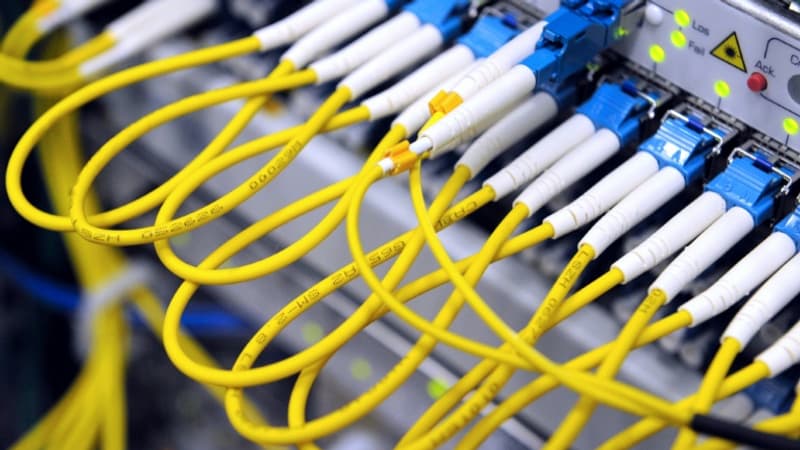2025 is the date that the government has set for all French people to be fiber connectable. Meanwhile, problems remain for those who already use it. On May 2, the Senate unanimously approved, in first reading, a bill by Ain senator Patrick Chaize (Les Républicains) to guarantee the quality of fiber optic connections and strengthen the rights of users in the event of interruption prolonged access to the Internet.
The bill provides for two areas of improvement. A first, technical part, starts from the observation that since 2018, due to the acceleration of fiber deployment, many malfunctions or degradations have been observed during the making of the final connections.
This is a cascade subcontracting that allows the model called “Stoc” of subcontracting to the commercial operator. The infrastructure operator and Internet access providers use subcontractors and technical service providers. “Sometimes it can go up to six rows of subcontractors,” exclaims Patrick Chaize.
In order to improve the system, the text provides in particular for the establishment by the network administrator of a “one-stop shop” to ensure the management of connection difficulties encountered by users.
“There are up to 15,000 connections per day. This is not a questioning of subcontracting, but rather a question of framing it”, specifies the senator. In spite of everything, the text foresees in certain cases the prohibition of “Stoc”.
Thus, this “supervision” will be based on the strengthening of the powers of control and sanction of the Authority for the Regulation of Electronic Communications, Mail and Press Distribution (Arcep) in terms of the quality of fiber connections. “The text gives Arcep the legal basis so that it can carry out quality controls and sanction the operators if necessary”, specifies the senator. This control will be based on the quality criteria listed in the text.
These criteria include, in particular, the labeling of the speakers, the establishment of reports at the end of each intervention carried out with the help of photos. “An artificial intelligence, whose system is under development, will be in charge of verifying the reports automatically,” explains the elected official.
A second aspect refers to the rights of users, in case of prolonged interruption of Internet access. Beyond five consecutive days of interruption, the subscription payment would be suspended. Beyond 10 days, the consumer would benefit from compensation that could not be less, per day of delay, than one fifth of the monthly price of the subscription. And after 20 days, it can be terminated free of charge by the user.
The minister responsible for the Digital Transition, Jean-Noël Barrot, admitted to AFP that “very important quality problems poison the daily life of our fellow citizens” and welcomed “very favorably” the provisions relating to the reinforcement of the powers of the ‘Arcep and improve user protection.
But the government has “a reserved opinion” about the other measures. According to Jean-Noël Barrot, “the vision of the government is not to remove the ‘Stoc’ mode, but to correct it”. The 13 amendments presented by the government were rejected.
For its part, the French Telecommunications Federation, which brings together national operators, including Orange, SFR (owned by Altice, like Tech&Co), Bouygues Telecom and Free, called in a press release to “the greatest vigilance regarding the effects that such a law could produce, contrary to the objectives of migration of access from copper to fiber, pursued by the public powers.”
Next step for the bill, the National Assembly. For the moment, the objective is to find a deputy who can carry this text. “I very much hope that the deputies will give in to the pressure of citizens who can’t bear to face these problems. Today it is no longer possible for fellow citizens to be deprived of an Internet connection for two months,” he explains.
The French territory continues to be home to many disparities in terms of access to fiber. In Finisterre for examplealmost one inhabitant out of two does not have very high-speed access.
Source: BFM TV


